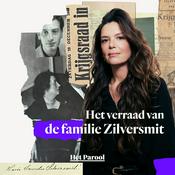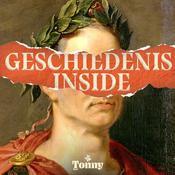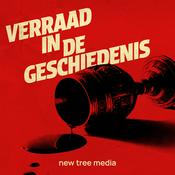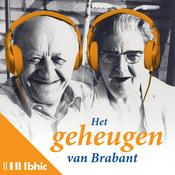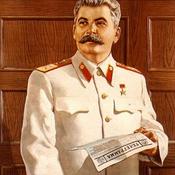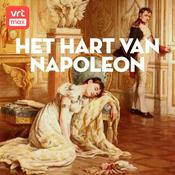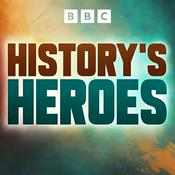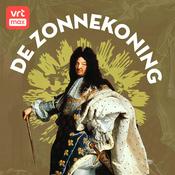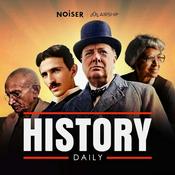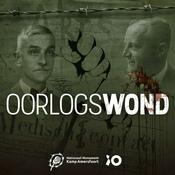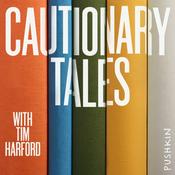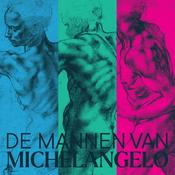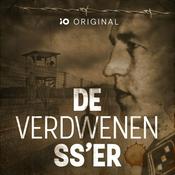200 afleveringen
- Journalist, author and historian Misha Glenny presents his first edition of In Our Time, succeeding Melvyn Bragg who retired from this role last summer. Misha and his guests discuss the landmark work On Liberty by John Stuart Mill, published in 1859 and the increasing recognition for his wife Harriet Taylor Mill's contribution. The subject matter of the essay is ‘civil or social liberty: the nature and limits of the power which can be legitimately exercised by society over the individual’ and it argues that the sole end for which mankind may interfere with the liberty of action of anyone is self-protection and even then only to prevent harm to others. This essay became enormously popular and a foundational text for liberalism.
With
Helen McCabe
Professor of Political Theory at the University of Nottingham
Mark Philp
Emeritus Professor of History and Politics at the University of Warwick
And
Piers Norris Turner
Associate Professor of Philosophy at The Ohio State University
Producer: Simon Tillotson
Reading list:
Jo Ellen Jacobs (ed.), Harriet Taylor Mill, Complete Works (Indiana University Press, 1998)
Bruce L. Kinzer, Ann P. Robson and John M. Robson, A Moralist In and Out of Parliament: John Stuart Mill at Westminster, 1865-1868 (University of Toronto Press, 1992)
Christopher Macleod and Dale Miller (eds.), A Companion to Mill (Wiley, 2016)
Helen McCabe, John Stuart Mill, Socialist (McGill-Queen’s University Press, 2021)
Helen McCabe, Harriet Taylor Mill (Cambridge, 2023)
Piers Norris Turner, ‘The Arguments of On Liberty: Mill’s Institutional Designs’ (Nineteenth-Century Prose 47 (1), 2020)
Piers Norris Turner et al (eds.), John Stuart Mill and Harriet Taylor Mill, On Liberty with Related Writings (Hackett Publishing, forthcoming 2026)
Mark Philp (ed.), John Stuart Mill: Autobiography (Oxford University Press, 2018)
Mark Philp and Frederick Rosen (eds.), John Stuart Mill: On Liberty, Utilitarianism and other Essays (Oxford University Press, 2015)
Frederick Rosen, Mill (Oxford University Press, 2013)
Alan Ryan, The Philosophy of John Stuart Mill (Palgrave MacMillan, 1998)
Ben Saunders, ‘Reformulating Mill’s Harm Principle’ (Mind 125/500, 2016)
John Skorupski, Why Read Mill Today? (Routledge, 2006)
William Stafford, John Stuart Mill (Red Globe Press, 1998)
C. L. Ten (ed.), Mill: On Liberty: A Critical Guide (Cambridge University Press, 2008)
Nadia Urbinati and Alex Zakaras (eds.), John Stuart Mill’s Political Thought: A Bicentennial Reassessment (Cambridge University Press, 2007)
In Our Time is a BBC Studios production - Melvyn Bragg and guests discuss John Barbour's epic poem The Brus, or Bruce, which he wrote c1375. The Brus is the earliest surviving poem in Older Scots and the only source of many of the stories of King Robert I of Scotland (1274-1329), popularly known as Robert the Bruce, and his victory over the English at Bannockburn in 1314. In almost 14,000 lines of rhyming couplets, Barbour distilled the aspects of the Bruce’s history most relevant for his own time under Robert II (1316-1390), the Bruce's grandson and the first of the Stewart kings, when the mood was for a new war against England after decades of military disasters. Barbour’s battle scenes are meant to stir in the name of freedom, and the effect of the whole is to assert Scotland as the rightful equal of any power in Europe.
With
Rhiannon Purdie
Professor of English and Older Scots at the University of St Andrews
Steve Boardman
Professor of Medieval Scottish History at the University of Edinburgh
And
Michael Brown
Professor of Scottish History at the University of St Andrews
Producer: Simon Tillotson
Reading list:
John Barbour (ed. A.A.M. Duncan), The Bruce (Canongate Classics, 2007)
G.W.S. Barrow, Robert Bruce and the Community of the Realm of Scotland (Edinburgh University Press, 1988)
Stephen Boardman, The Early Stewart Kings: Robert II and Robert III (Tuckwell Press, 1996)
Steve Boardman and Susan Foran (eds.), Barbour's Bruce and its Cultural Contexts: Politics, Chivalry and Literature in Late Medieval Scotland (D.S. Brewer, 2015)
Michael Brown, Disunited Kingdoms: Peoples and Politics in the British Isles, 1280-1460 (Routledge, 2013)
Michael Brown, The Wars of Scotland, 1214-1371 (Edinburgh University Press, 2004)
Thomas Owen Clancy and Murray Pittock, Ian Brown and Susan Manning (eds.), The Edinburgh History of Scottish Literature, Vol. 1: From Columba to the Union (until 1707), (Edinburgh University Press 2006)
Robert Crawford, Scotland's Books: A History of Scottish Literature (Oxford: Oxford University Press, 2009)
Robert DeMaria Jr., Heesok Chang and Samantha Zacher (eds.), A Companion to British Literature: Vol 1, Medieval Literature, 700-1450 (John Wiley & Sons, 2014), especially 'Before the Makars: Older Scots literature under the early Stewart Kings' by Rhiannon Purdie
Colm McNamee, The Wars of the Bruces: Scotland, England and Ireland 1306-1328 (Tuckwell Press, 2001)
Michael Penman, Robert the Bruce, King of the Scots (Yale University Press, 2014)
In Our Time is a BBC Studios Audio Production
Spanning history, religion, culture, science and philosophy, In Our Time from BBC Radio 4 is essential listening for the intellectually curious. In each episode, host Melvyn Bragg and expert guests explore the characters, events and discoveries that have shaped our world. - In 1897, Gustav Klimt led a group of radical artists to break free from the cultural establishment of Vienna and found a movement that became known as the Vienna Secession.
In the vibrant atmosphere of coffee houses, Freudian psychoanalysis and the music of Wagner and Mahler, the Secession sought to bring together fine art and music with applied arts such as architecture and design.
The movement was characterized by Klimt’s stylised paintings, richly decorated with gold leaf, and the art nouveau buildings that began to appear in the city, most notably the Secession Building, which housed influential exhibitions of avant-garde art and was a prototype of the modern art gallery. The Secessionists themselves were pioneers in their philosophy and way of life, aiming to immerse audiences in unified artistic experiences that brought together visual arts, design, and architecture.
With:
Mark Berry, Professor of Music and Intellectual History at Royal Holloway, University of London
Leslie Topp, Professor Emerita in History of Architecture at Birkbeck, University of London
And
Diane Silverthorne, art historian and 'Vienna 1900' scholar
Producer: Eliane Glaser
Reading list:
Mark Berry, Arnold Schoenberg: Critical Lives (Reaktion Books, 2018)
Gemma Blackshaw, Facing the Modern: The Portrait in Vienna 1900 (National Gallery Company, 2013)
Elizabeth Clegg, Art, Design and Architecture in Central Europe, 1890-1920 (Yale University Press, 2006)
Richard Cockett, Vienna: How the City of Ideas Created the Modern World (Yale University Press, 2023)
Stephen Downes, Gustav Mahler (Reaktion Books, 2025)
Peter Gay, Freud, Jews, and Other Germans: Masters and Victims in Modernist Culture (Oxford University Press, 1979)
Tag Gronberg, Vienna: City of Modernity, 1890-1914 (Peter Lang, 2007)
Allan S. Janik and Hans Veigl, Wittgenstein in Vienna: A Biographical Excursion Through the City and its History (Springer/Wien, 1998)
Jill Lloyd and Christian Witt-Dörring (eds.), Vienna 1900: Style and Identity (Hirmer Verlag, 2011)
William J. McGrath, Dionysian Art and Populist Politics in Austria (Yale University Press, 1974)
Tobias Natter and Christoph Grunenberg (eds.), Gustav Klimt: Painting, Design and Modern Life (Tate, 2008)
Carl E. Schorske, Fin-de-siècle Vienna: Politics and Culture (Vintage, 1979)
Elana Shapira, Style and Seduction: Jewish Patrons, Architecture and Design in Fin-de-Siècle Vienna (Brandeis University Press, 2016)
Diane V Silverthorne, Dan Reynolds and Megan Brandow-Faller, Die Fläche: Design and Lettering of the Vienna Secession, 1902-1911 (Letterform Archive, 2023)
Edward Timms, Karl Kraus: Apocalyptic Satirist: Culture & Catastrophe in Habsburg Vienna (Yale University Press, 1989)
Leslie Topp, Architecture and Truth in Fin-de-Siècle Vienna (Cambridge University Press, 2004)
Peter Vergo, Art in Vienna, 1898-1918: Klimt, Kokoschka, Schiele and Their Contemporaries (4th ed., Phaidon, 2015)
Hans-Peter Wipplinger (ed.), Vienna 1900: Birth of Modernism (Walther & Franz König, 2019)
Hans-Peter Wipplinger (ed.), Masterpieces from the Leopold Museum (Walther & Franz König)
Stefan Zweig, The World of Yesterday: An Autobiography (University of Nebraska Press, 1964)
In Our Time is a BBC Studios Audio Production
Spanning history, religion, culture, science and philosophy, In Our Time from BBC Radio 4 is essential listening for the intellectually curious. In each episode, host Melvyn Bragg and expert guests explore the characters, events and discoveries that have shaped our world. - Melvyn Bragg and guests discuss one of the great figures in world literature. The French playwright Molière (1622-1673) began as an actor, aiming to be a tragedian, but he was stronger in comedy, touring with a troupe for 13 years until Louis XIV summoned him to audition at the Louvre and gave him his break. It was in Paris and at Versailles that Molière wrote and performed his best known plays, among them Tartuffe, Le Misanthrope and Le Malade Imaginaire, and in time he was so celebrated that French became known as The Language of Molière.
With
Noel Peacock
Emeritus Marshall Professor in French Language and Literature at the University of Glasgow
Jan Clarke
Professor of French at Durham University
And
Joe Harris
Professor of Early Modern French and Comparative Literature at Royal Holloway, University of London
Producer: Simon Tillotson
Reading list:
David Bradby and Andrew Calder (eds.), The Cambridge Companion to Molière (Cambridge University Press, 2006)
Jan Clarke (ed.), Molière in Context (Cambridge University Press, 2022)
Georges Forestier, Molière (Gallimard, 2018)
Michael Hawcroft, Molière: Reasoning with Fools (Oxford University Press, 2007)
John D. Lyons, Women and Irony in Molière’s Comedies of Mariage (Oxford University Press, 2023)
Robert McBride and Noel Peacock (eds.), Le Nouveau Moliériste (11 vols., University of Glasgow Presw, 1994- )
Larry F. Norman, The Public Mirror: Molière and the Social Commerce of Depiction (University of Chicago Press, 1999)
Noel Peacock, Molière sous les feux de la rampe (Hermann, 2012)
Julia Prest, Controversy in French Drama: Molière’s Tartuffe and the Struggle for Influence (Palgrave Macmillan, 2014)
Virginia Scott, Molière: A Theatrical Life (Cambridge University Press, 2020)
In Our Time is a BBC Studios Audio Production - Melvyn Bragg and guests discuss one of the most energetic, varied and innovative playwrights of his time. Thomas Middleton (1580-1627) worked across the London stages both alone and with others from Dekker and Rowley to Shakespeare and more. Middleton’s range included raucous city comedies such as A Chaste Maid in Cheapside and chilling revenge tragedies like The Changeling and The Revenger’s Tragedy, some with the main adult companies and some with child actors playing the scheming adults. Middleton seemed to be everywhere on the Jacobean stage, mixing warmth and cruelty amid laughter and horror, and even Macbeth’s witches may be substantially his work.
With
Emma Smith
Professor of Shakespeare Studies at Hertford College, University of Oxford
Lucy Munro
Professor of Shakespeare and Early Modern Literature at Kings College London
And
Michelle O’Callaghan
Professor of Early Modern Literature at the University of Reading
Producer: Simon Tillotson
Reading list:
Swapan Chakravorty, Society and Politics in the Plays of Thomas Middleton (Clarendon Press, 1996)
Suzanne Gossett (ed.), Thomas Middleton in Context (Cambridge University Press, 2011)
R.V. Holdsworth (ed.), Three Jacobean Revenge Tragedies: A Selection of Critical Essays (Macmillan, 1990), especially ‘Calvinist Psychology in Middleton’s Tragedies’ by John Stachniewski
Mark Hutchings and A. A. Bromham, Middleton and His Collaborators (Northcote House, 2007)
Gordon McMullan and Kelly Stage (eds.), The Changeling: The State of Play (The Arden Shakespeare, 2022)
Lucy Munro, Shakespeare in the Theatre: The King's Men (The Arden Shakespeare, 2020)
David Nicol, Middleton & Rowley: Forms of Collaboration in the Jacobean Playhouse (University of Toronto Press, 2012)
Michelle O’Callaghan, Thomas Middleton: Renaissance Dramatist (Edinburgh University Press, 2009)
Gary Taylor and Trish Thomas Henley (eds.), The Oxford Handbook of Thomas Middleton (Oxford University Press, 2012)
In Our Time is a BBC Studios Audio Production
Meer Geschiedenis podcasts
Trending Geschiedenis -podcasts
Over In Our Time: Culture
Popular culture, poetry, music and visual arts and the roles they play in our society.
Podcast websiteLuister naar In Our Time: Culture, Geschiedenis voor herbeginners en vele andere podcasts van over de hele wereld met de radio.net-app
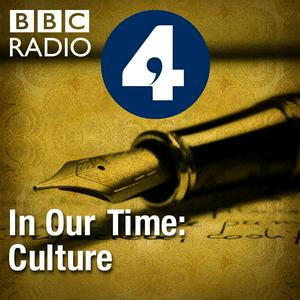
Ontvang de gratis radio.net app
- Zenders en podcasts om te bookmarken
- Streamen via Wi-Fi of Bluetooth
- Ondersteunt Carplay & Android Auto
- Veel andere app-functies
Ontvang de gratis radio.net app
- Zenders en podcasts om te bookmarken
- Streamen via Wi-Fi of Bluetooth
- Ondersteunt Carplay & Android Auto
- Veel andere app-functies


In Our Time: Culture
Scan de code,
download de app,
luisteren.
download de app,
luisteren.




